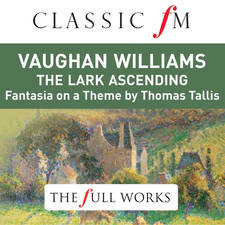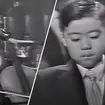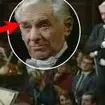Bradley Cooper says he was ‘levitating above the orchestra’ in surreal Maestro conducting scene
6 December 2023, 14:57 | Updated: 6 December 2023, 17:21

Bradley Cooper and Carey Mulligan on Bernstein, Mahler, and the making of ‘Maestro’ | Classic FM
Maestro star Bradley Cooper said conducting the London Symphony Orchestra for his new biopic was an ‘intoxicating’ experience – but he couldn’t do it professionally!
Listen to this article
Bradley Cooper and Carey Mulligan spoke to Classic FM about the experience of becoming ‘Lenny and Felicia’ for Maestro, Cooper’s new biopic about the musical and personal life of American composer and conductor, Leonard Bernstein.
The film’s musical climax is an extraordinary six-minute take of Cooper conducting the London Symphony Orchestra in Mahler’s ‘Resurrection’ Symphony at Ely Cathedral, as Bernstein himself famously did in 1973.
“Unfortunately, the first day it was terrifying and it was horrendous, because I kept messing up – and because we were doing it live,” Cooper told Classic FM. “And then luckily, I think all the years of preparation and work paid off.
“Something magical happened in that take and that’s what’s in the movie – that one set-up, one take.
“If I were to recall it, [that take] felt like I was levitating above the orchestra like 10 feet, like angled over them – that’s my memory of it. It was very surreal,” the actor added. “It just felt special and ritualistic.”
In the film, Carey Mulligan – who plays Bernstein’s wife, actress Felicia Montealegre – stands in the wings for the entire performance. But, Mulligan recalled, “Once Bradley had done that one single take, we got to sit in the front row, and they did the entire thing again.
“So we got to watch it without being in character at all. That felt like an enormous gift.”
Read more: Leonard Bernstein: 10 best pieces of music by the American maestro
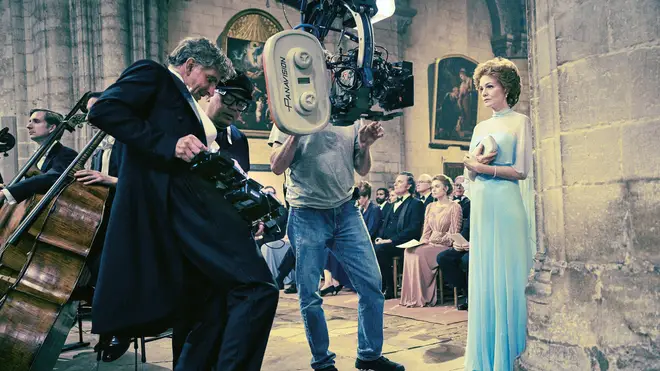
Cooper’s transformation took years of hard work, working with, among other musical experts, conducting consultant and music director of the Metropolitan Opera and Philadelphia Orchestra, Yannick Nézet-Séguin. In 2019, Nézet-Séguin invited Mulligan and Cooper to narrate Bernstein’s musical Candide.
Mulligan said: “I’ll never forget the feeling of being on stage the first time they sang ‘Make our Garden Grow’. And you know, the choir and the orchestra and the lead. I mean, it was just, I mean, we both were crying.”
After seeing him conduct in Maestro, Nézet-Séguin said he would happily hand Cooper the baton for the Philadelphia Orchestra. But would Cooper take him up on the offer?
“No, no, that was for the movie!” the actor replied. “Although I would say that it was so intoxicating. It would just take a tremendous amount of work … it would take me forever to learn how to do it.”
It took six years of training for Cooper to become Bernstein. “It was a terrifying, daunting journey,” he said.
“It wasn’t as if every day I was like, I’m one step closer to Lenny. It took a lot a tremendous amount of work – on the voice, on learning how to conduct, specifically Mahler’s ‘Resurrection’, studying his mannerisms … the way he spoke and then simultaneously writing the script.”

How Yannick Nézet-Séguin taught Bradley Cooper to conduct like Bernstein | Classic FM
Bernstein was a skilled pianist, and often conducted piano concertos from the keyboard. And so, Cooper also took up piano for the movie. But, the actor prefaces, “I can only learn the thing that you see! The same thing as in A Star is Born – I just learned those specific pieces because I never wanted to cut to a hand, or do some sort of face replacement.”
In one scene, we see Bernstein playing with close friend Aaron Copland – one of several name-drops in the movie to legendary figures of 20th century America. Brian Clements, Cooper’s own real life best friend since he was 10 years old, plays Copland.
“We spent months learning that piece,” the actor said. “And that’s us playing. What you’re hearing is a much, much better version of playing – but that is us playing!”
Read more: ‘He should pursue conducting’ – the real maestro who taught Bradley Cooper to conduct like Bernstein
Bernstein was the youngest person to conduct the New York Philharmonic, the first US conductor to reach worldwide fame – and a magical rarity in the way he reached audiences. He was a true once-in-a-lifetime talent, who had a meteoric rise to stardom in the musical world and beyond.
“He was punk rock, period,” Cooper said. “And for him to be a classical musician and be utterly punk rock was kind of incredible – dynamic.
“And he was just so intoxicating. Everybody that we spoke to, everyone talked about how when he walked in the room, he just took over. And he was just, you know, talent dripping off him.
“Look at how it affected his family. I mean, they all stopped playing the piano basically. Because they just... it was too intimidating. I mean, that’s kind of nuts.”
Referring to Felicia, Cooper added: “And she came to New York, even though under the guise as a pianist, she was a great pianist, but he just and that was the third you know, piece of his talent.”
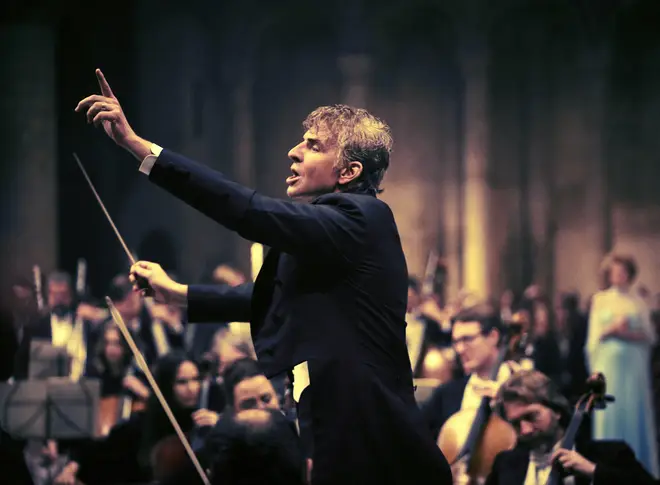
As part of the research process, Cooper and Mulligan met with the Bernstein family, including children Nina, Alex and Jamie.
Mulligan also met some of Montealegre’s family, who told stories about how it was, to be around Bernstein. “I met Felicia’s brother-in-law, who was 95, I think, in Santiago, Chile. And he said that they were having a really lovely time, the family all together and very peaceful and calm and lots of reading books and painting…
“And then Lenny showed up. And just suddenly it was a whirlwind. Suddenly Charlie Chaplin was there. And suddenly, you know… it was a kind of hurricane that came in the best way, but sometimes the worst. The world would change.”
Within his incredible musical legacy, Bernstein is remembered as the first conductor to give a series of television lectures on classical music, starting in 1958 and continuing until his death.
“I think he did 15 seasons of the Young People’s Concerts, which was a television programme where the youth would come in at Carnegie Hall and then Lincoln Centre and he would spend an episode teaching them about Gustav Mahler, or The Beatles or ‘what is atonal?’ – all of these various musical facts or subject matters,” Cooper said.
“He was just an incredible communicator and incredible teacher. That’s part of why he was such a majestic conductor.
“Our hope is that maybe hopefully this movie... the one thing I knew we had was nuclear energy in his music. The whole movie is scored to his music – it was written to his music! It is one symphonic musical element, the movie itself. So hopefully, if anything beneficial comes out of this is that people will Spotify Leonard Bernstein after they watch the film, and hopefully Gustav Mahler as well.”
Read more: Leonard Bernstein’s daughter Jamie: ‘I wish my father was around to see Maestro!’
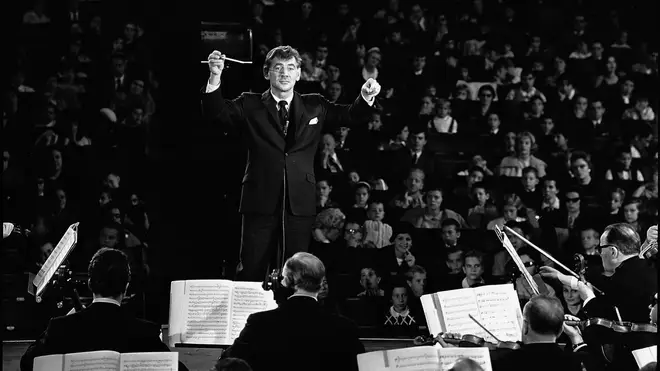
Even before filming Maestro, classical music had held a personal element for Cooper, beyond the silver screen.
“I always listen to classical music all day long in my house – for years,” he said. “It’s always on. My daughter’s slept to classical music since she was little.”
But his transformation into Leonard Bernstein gave the actor a chance to immerse himself further in the world of American orchestras, conductors and concert halls today.
“The other great thing about what we get to do for a living is the research part,” he said. “I was able to spend four years, three nights a week at the New York Phil. And then when I was in LA at the Disney Hall.
“[Conductor] Michael Tilson Thomas was really a wonderful person that I was able to share, we would FaceTime he would play music and tell stories and he was just wonderful.
“So I really had such an invite into the world of classical music,” he said. “And it’s just this reservoir for people in so many cities across America that could really you know, benefit from visiting them.”
